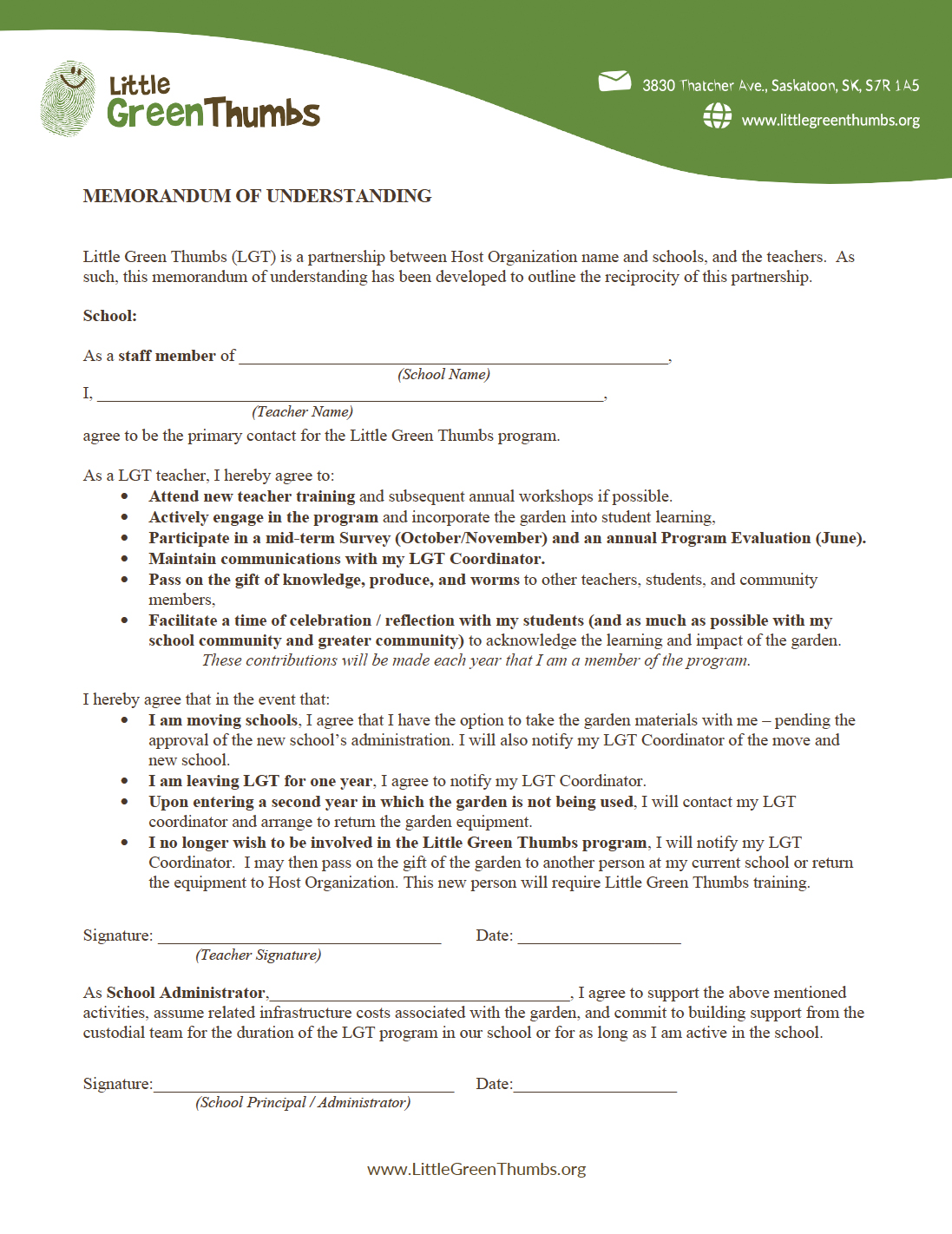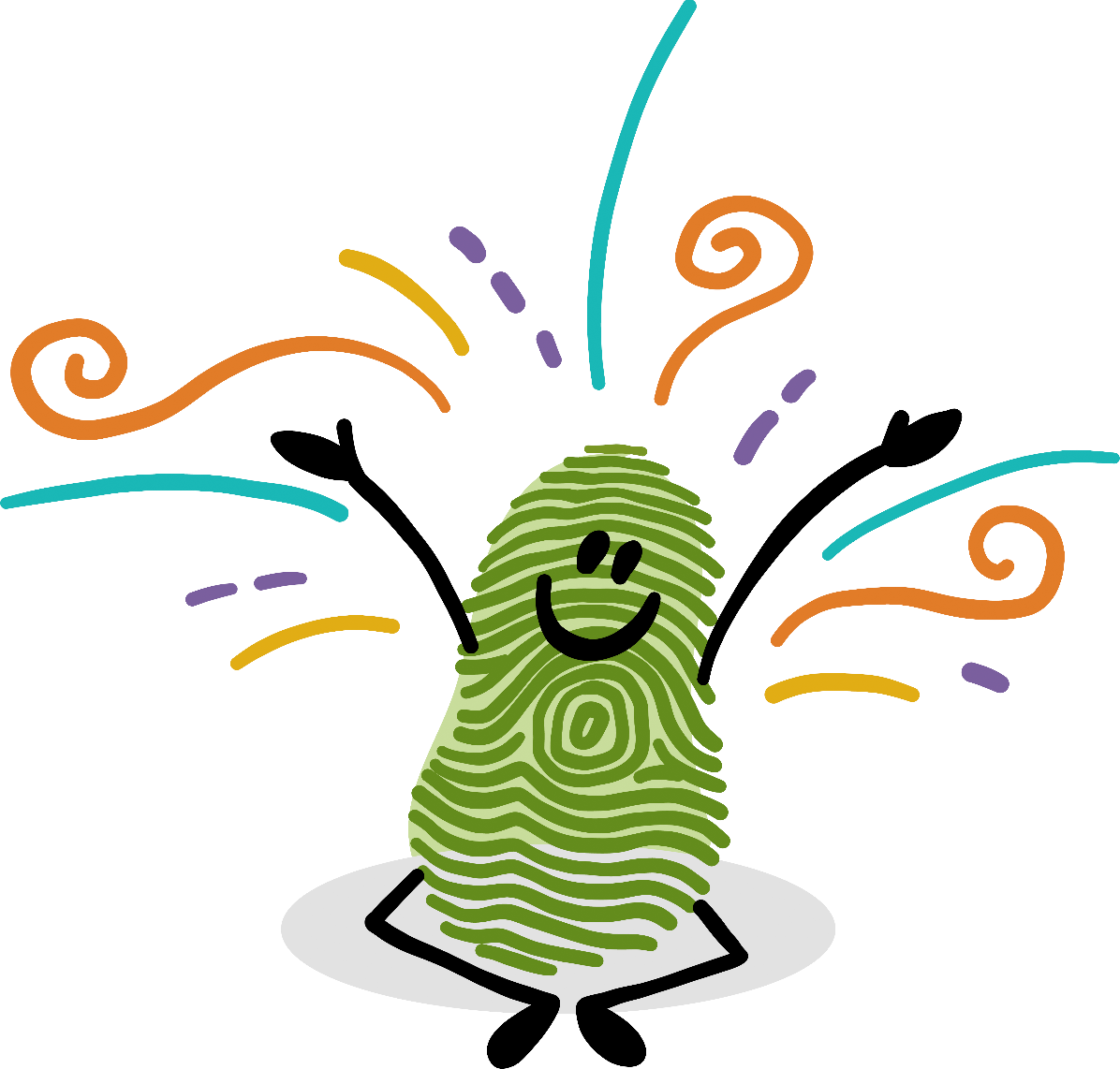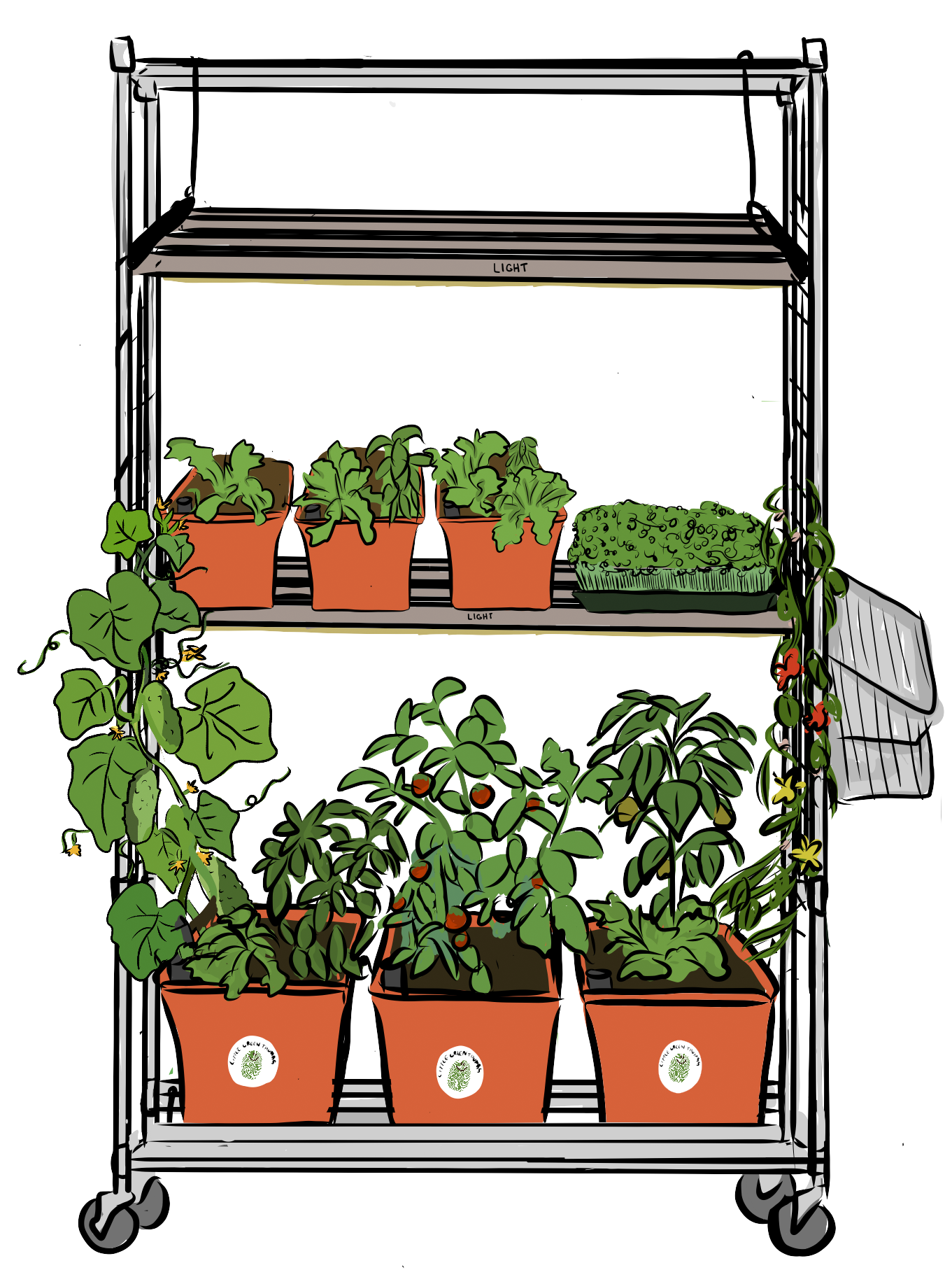
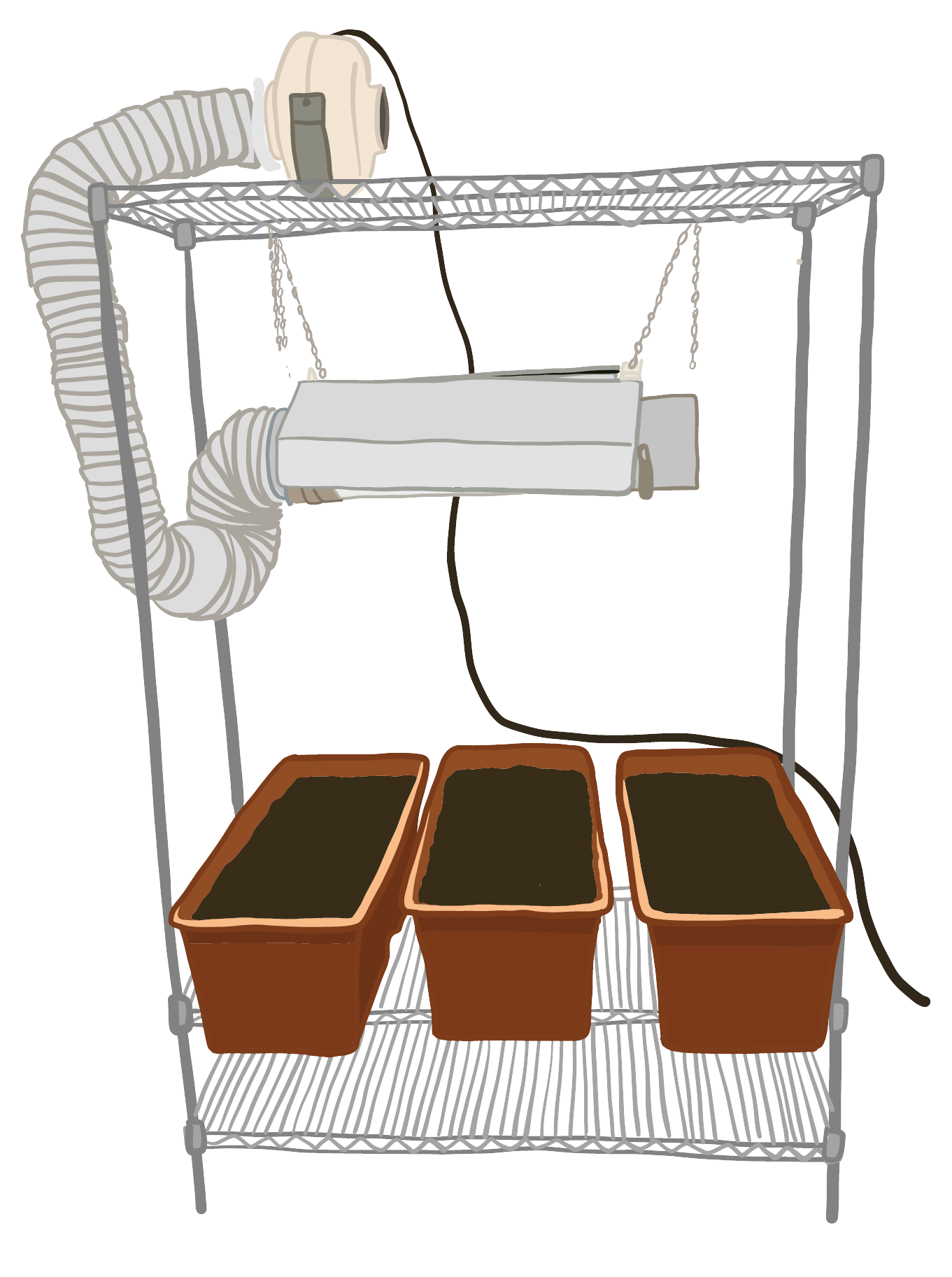
Manual Section 2
Equipment
Shelving Unit
Will be delivered directly to schools by Vancouver Classics: shelf liner, accessory basket, “S” hooks, oscillating fan.
Lighting System
(3 in total)
48” bulbs (4), 24” bulbs (4), connector strips (3), hanging clips (3), linking cords, timer/surge bar
Self Watering Containers
Earthboxes and GrowEase Salad tray, trellising net, stakes, fertilizer, dolomite lime, liquid fertilizer, boot trays, funnel
Growing Materials & Seed Starting
Peat pellets, trays, humidity domes, self-watering flat, seeds
Classroom Resources
Manual, Posters, Journals
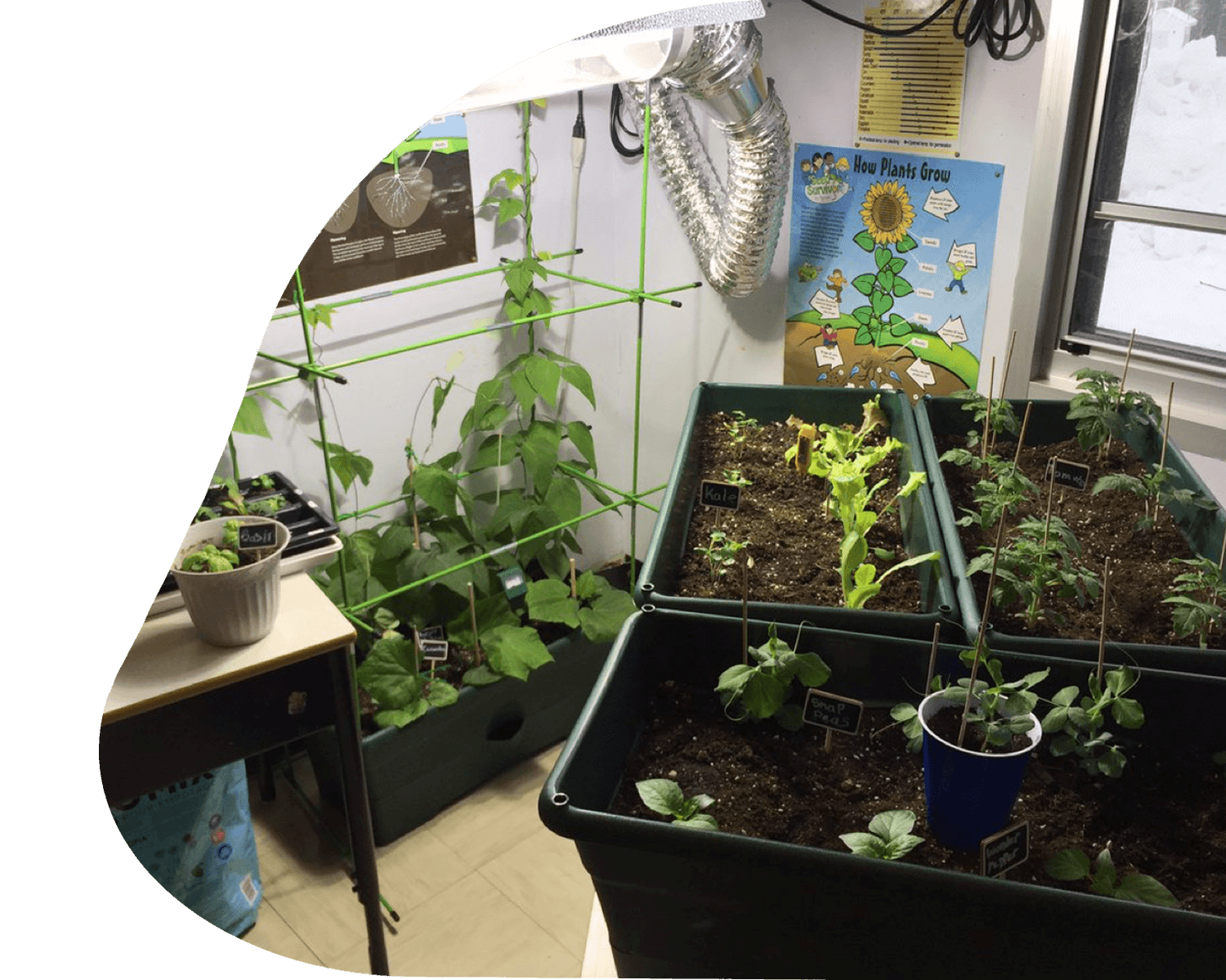
Little Green Thumbs Vision
A garden in every school –
a school in every garden.
Coming alive in a garden of possibilities!
Little Green Thumbs Mission
To engage, empower and support students
with hands-on, cross-curricular educational
experiences by growing gardens in their own
learning environments.
The Little Green Thumbs Charter
“Plant, Grow, Eat, Share.”
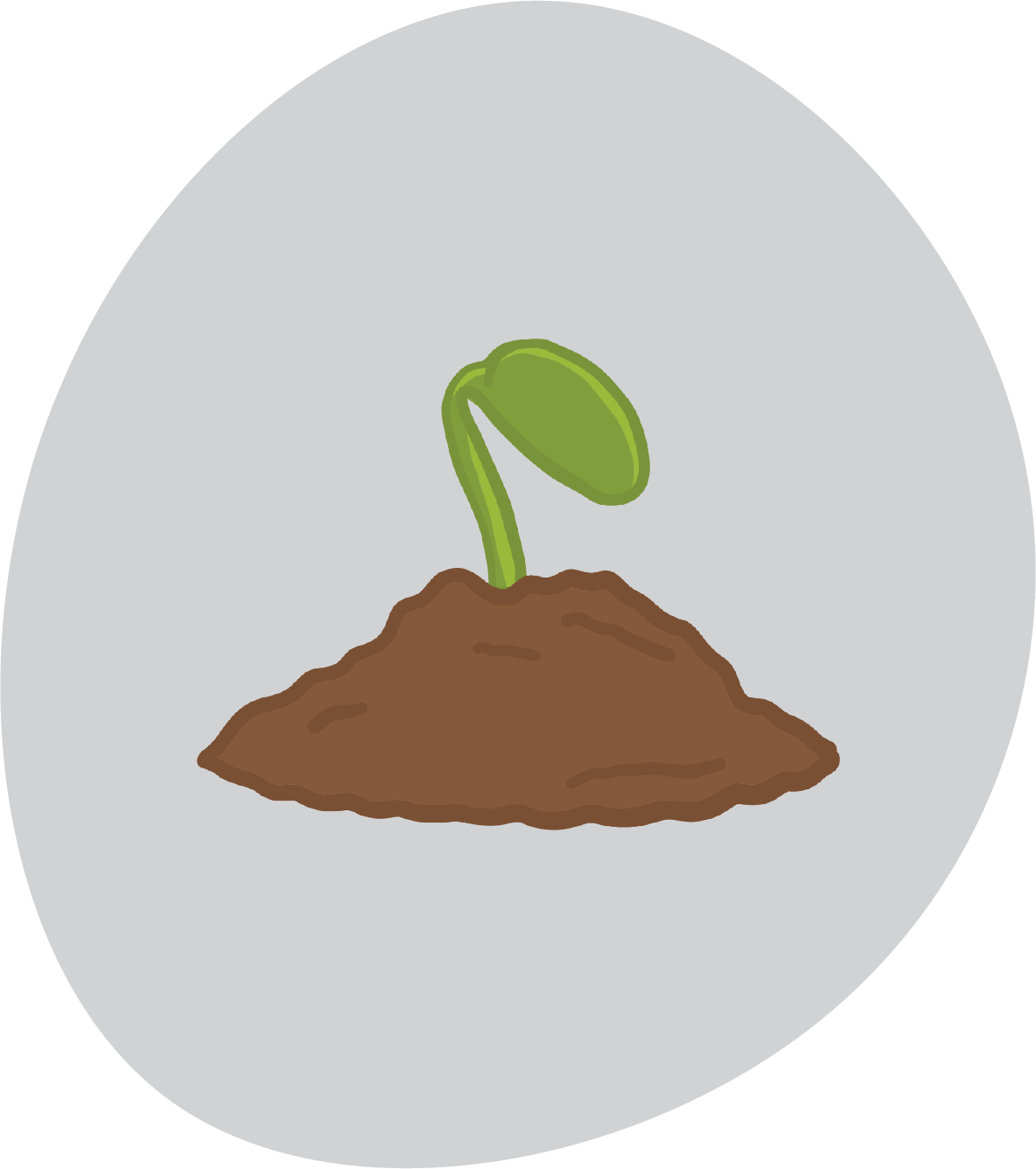
Plant… a Garden!
Students get their hands dirty – literally – planting their garden from seed. Working with soil bridges the relationship to the outside environment, connecting children to the earth and to agriculture.
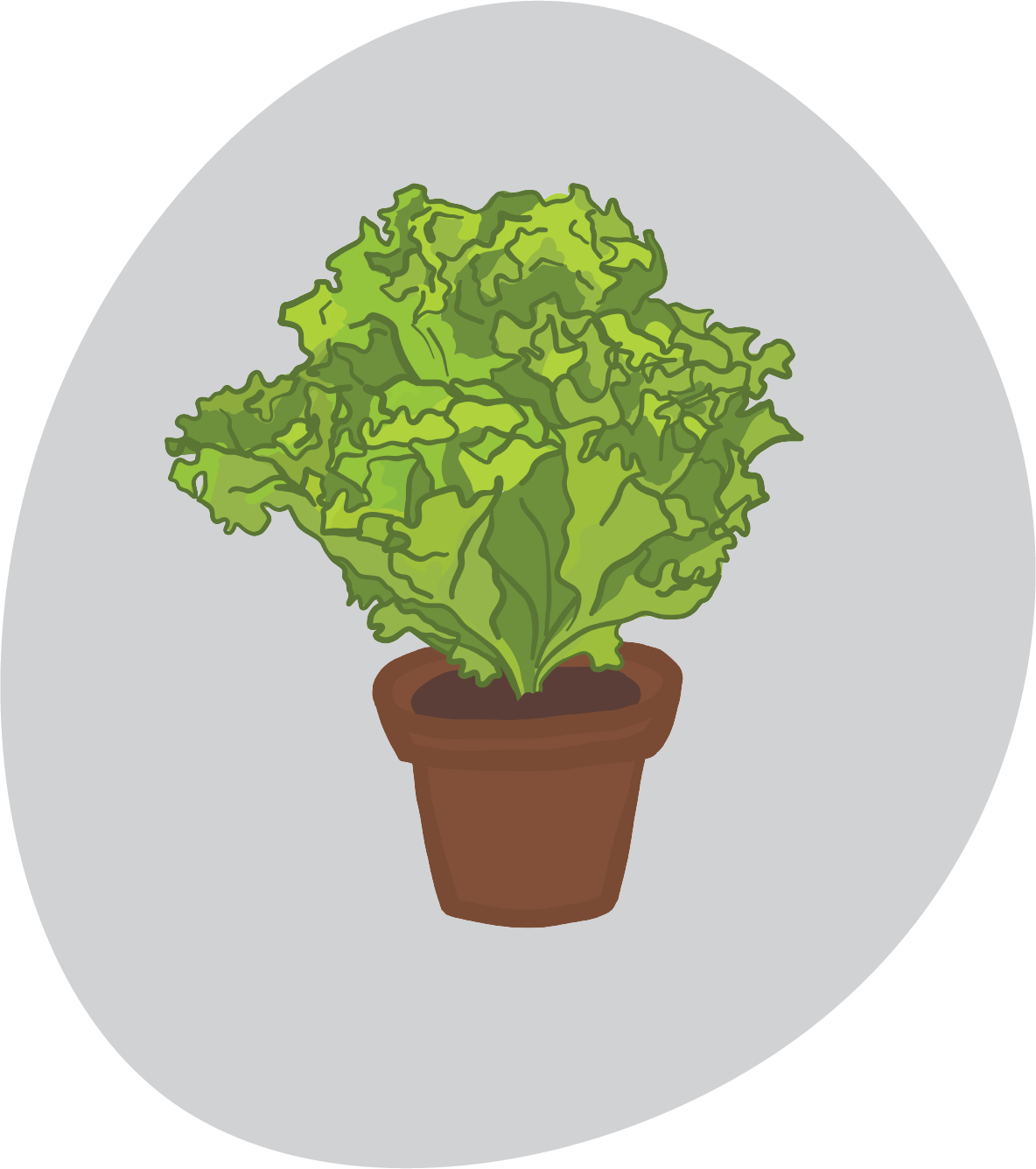
Grow… Understanding!
We grow more than just food in our gardens! Countless learning opportunities blossom as students cultivate their garden and grow their understanding of the relationships between food, themselves, their community and the environment.
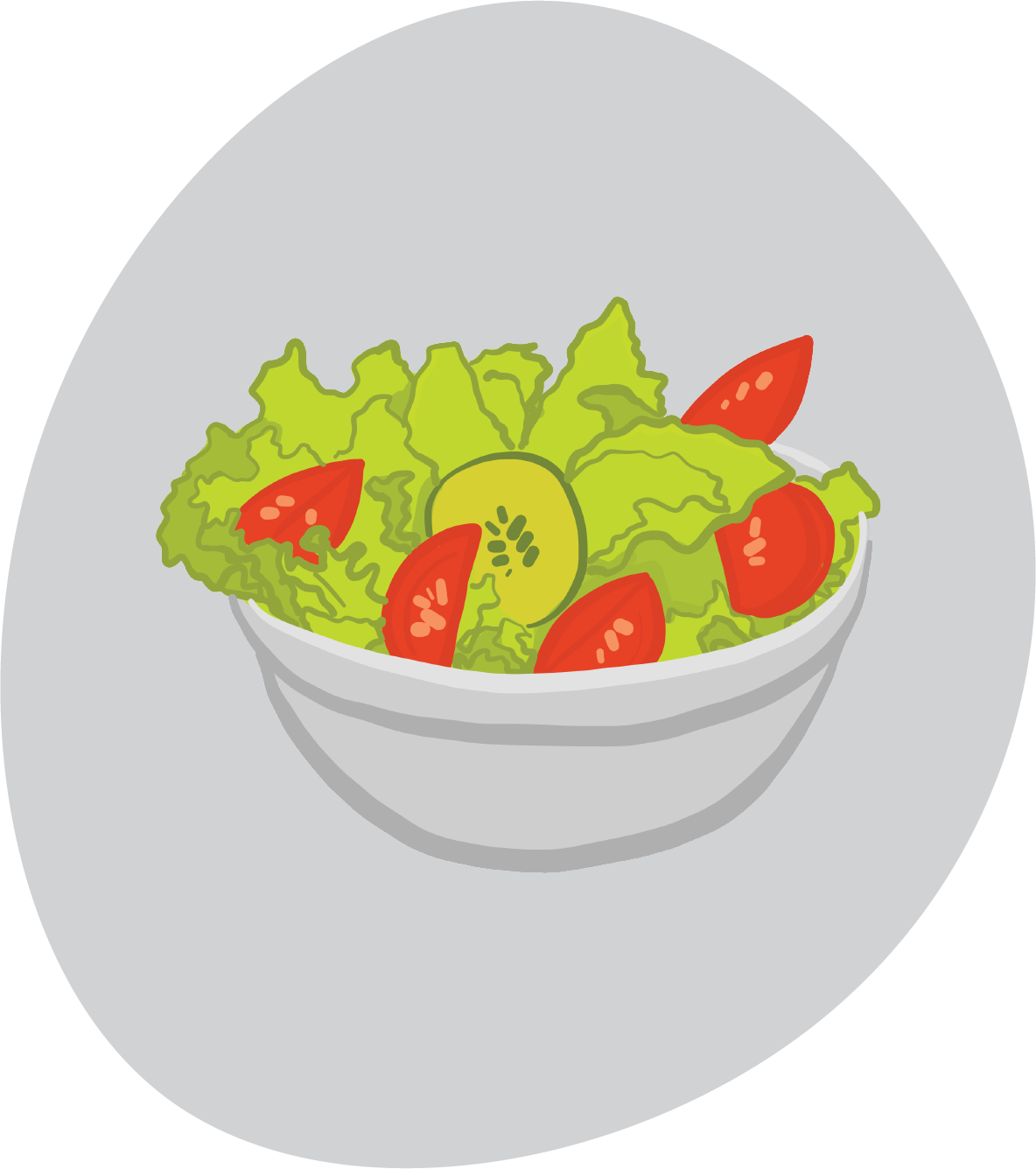
Eat… the Harvest!
Students taste the fruits of their labour, and celebrate with their classmates at a salad-bration! Engaging students in food production, harvest and preparation inspires inquiry into where their food comes from and how it gets to our plate.
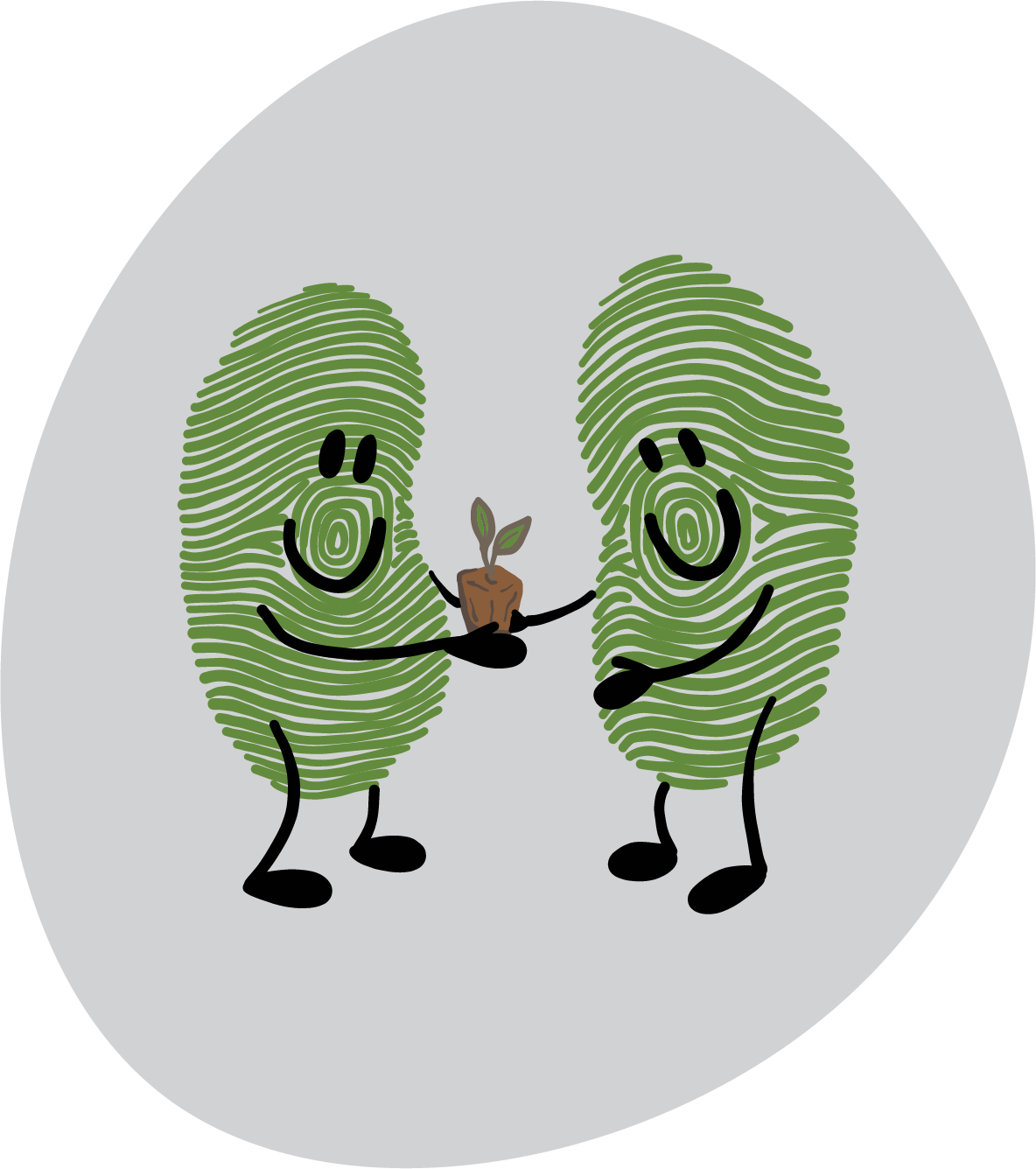
Share… the Surplus!
Little Green Thumbs pass on the gift through sharing vegetables, knowledge, experience, compost or even worms to other classrooms, family and community members.
Our Top 8 Evidence-based Reasons for Growing a Classroom Garden
(Page 19)
 |
Gardens create greater opportunities for hands-on, experiential learning and can improve academic achievement.
(Berezowitz, Bontrager, Schoeller, 2015) |
 |
Students show a willingness to try new foods after garden-based education and research shows that eating patterns, and especially food choices relating to the consumption of fruits and vegetables, are developed at an early age.
(Kirby 1995) |
 |
Gardens help to increase knowledge and awareness about gardening, agriculture, healthy eating, local foods, nutrition, growing cycles, seasonality and other STEM concepts (in early childhood and K-12 settings).
(Schmidt, 2006; Hughes, 2007; Murphy, 2003) |
 |
Gardens lead to an improvement in nutrition habits, environmental awareness and health-related knowledge.
(Boxmeyer, 2013-2014) |
 |
Gardens build responsibility, confidence, promote teamwork and build positive social and emotional skills.
(Robinson & Zajicek, 2005; Hung, 2004; Alexander, North & Hendren, 1995) |
 |
Gardens build environmental stewardship in students. (Flagler, 1995) |
 |
School gardens support inquiry and connection to the natural world.
(Habib & Doherty, 2007) |
 |
Gardens increase the opportunity for innovative teaching platforms for core subjects, such as science, math and language arts in early childhood and K-12 settings.
(Hoffman et al., 2016) |
Manual – Program Elements (pages 10 – 15)
Included in the
Little Green Thumbs
Program
A Complete
Garden
Kit
Training &
Learning
Opportunities
Educational &
Growing
Resources
Support From
Your
Coordinator
Classroom
Presentations
Celebration
Events
Training and Support
- Structured program designed for classroom growth
- Orientation workshop, semi-annual conference, networking gatherings
- Teacher manual; Teacher Portal; Program Coordinators; Annual garden supplies provided; Online access to: videos, how-tos, troubleshooting
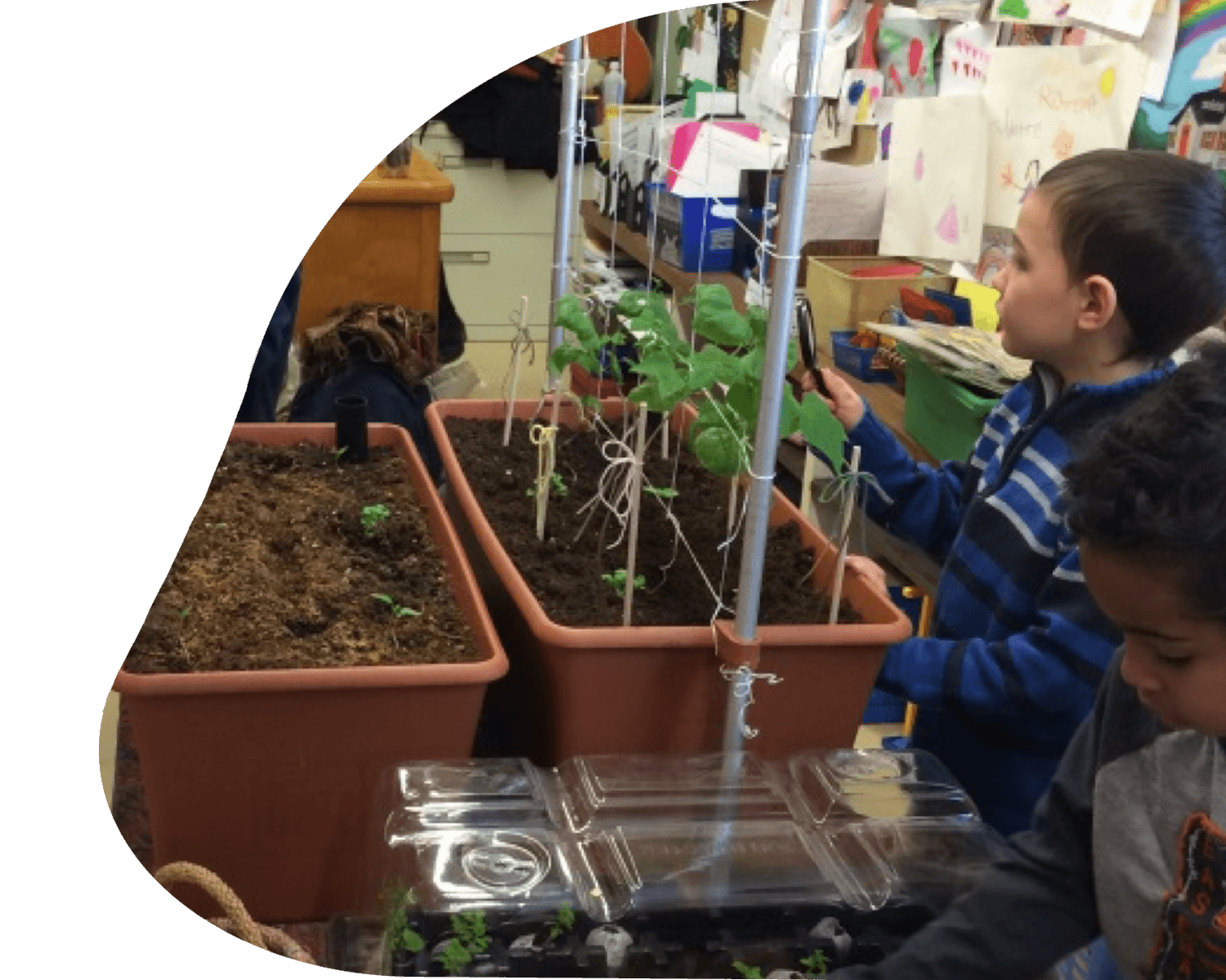
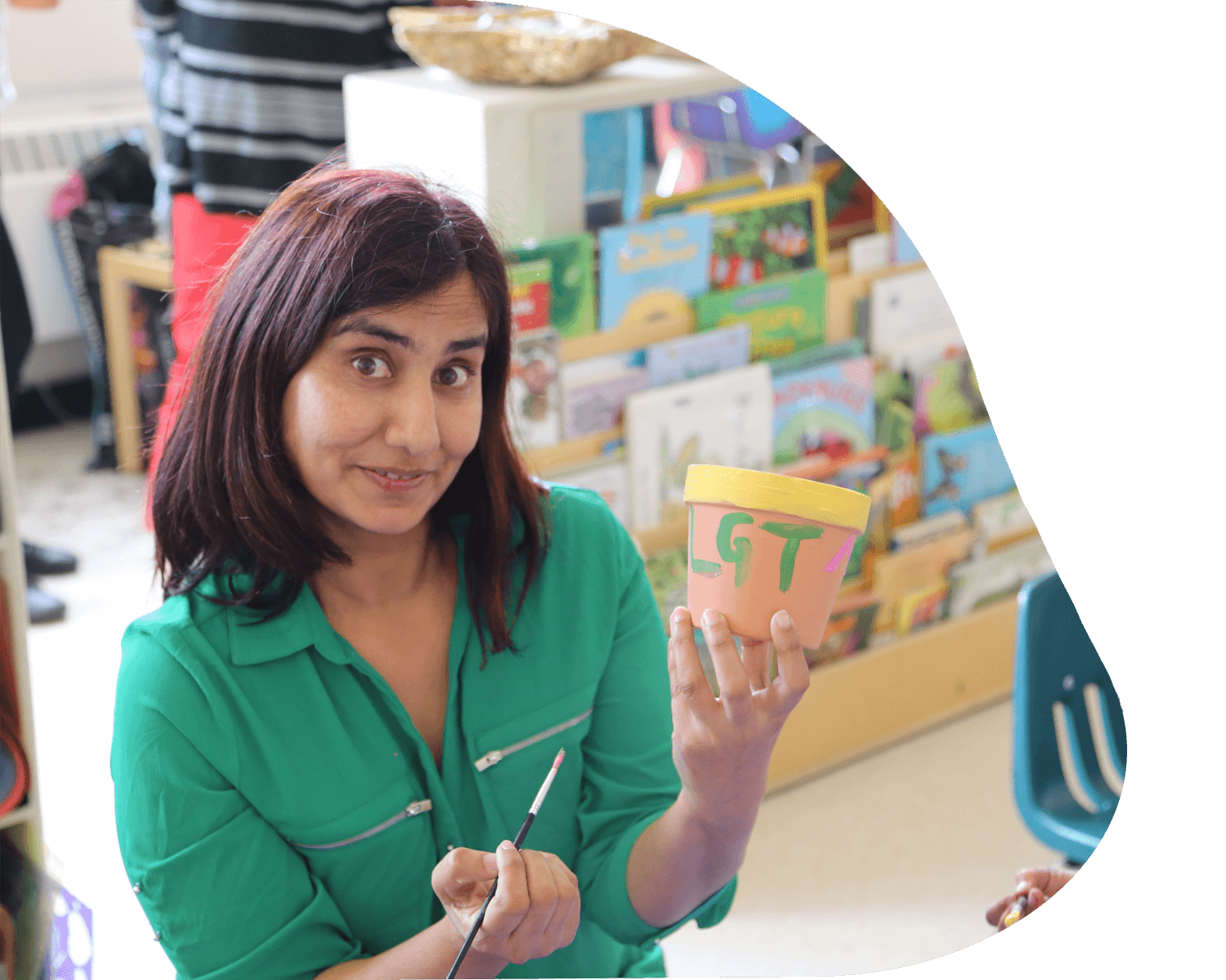
Classroom Presentations
- Guaranteed visit for first year LGT teachers
- By availability to all program teachers
- Garden-based activity
- No cost
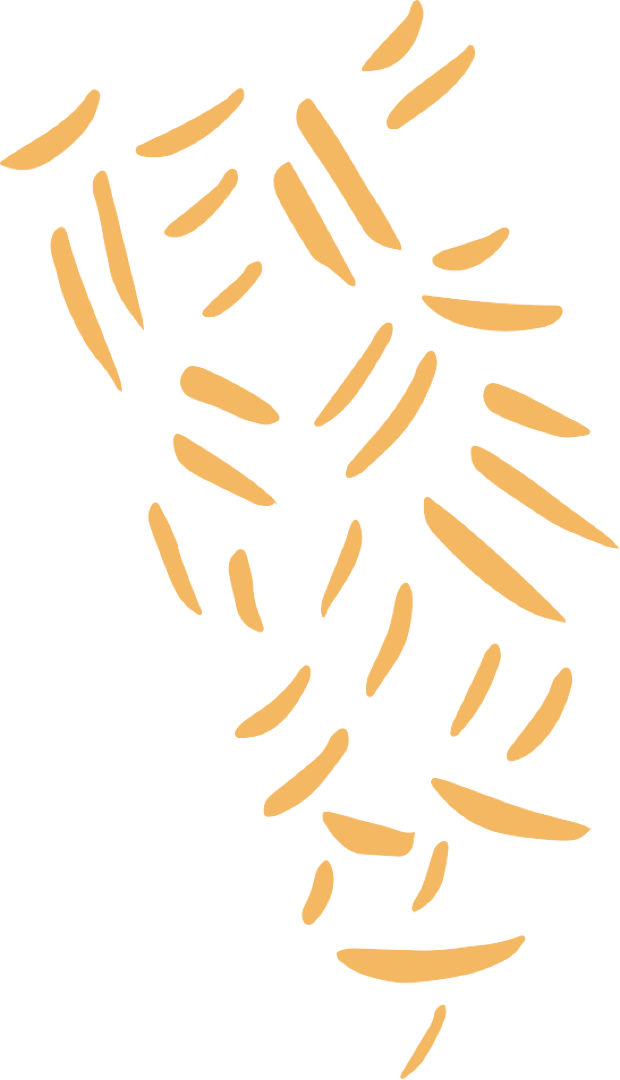
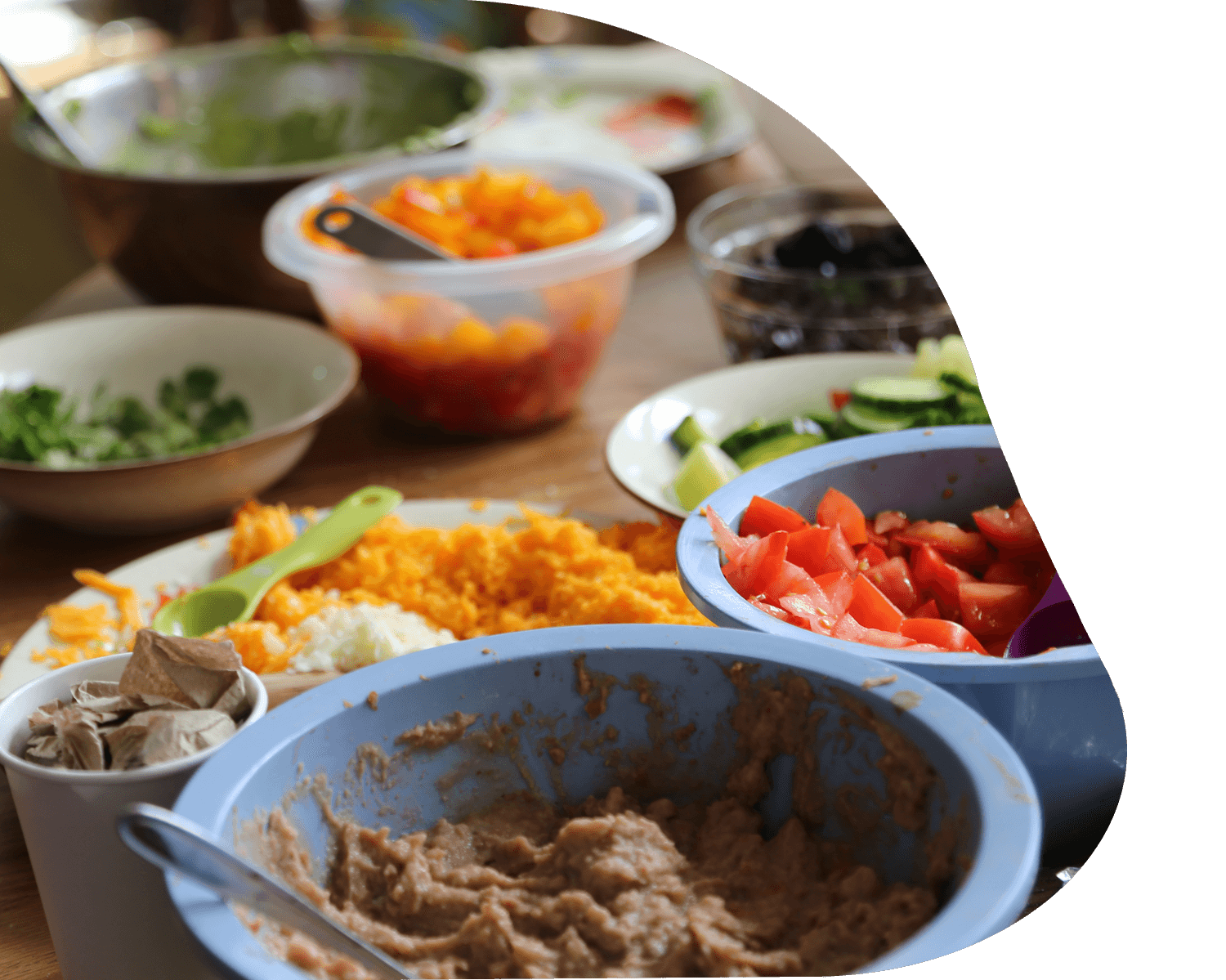
Celebration Events
- A way of honouring the learning and growing that happened in the garden
- Loads of options – Salad-bration, guest speaker, picnic, field trip
- $100 support in the first year, by availability in following years
- Coordinator can assist in the planning and/or attend the event

Integrating Indigenous Perspectives
- Support the acknowledgement and celebration of the cultural identities of all students represented in your learning cohorts
- Provide connections and opportunities for inclusion of traditional ways of knowing
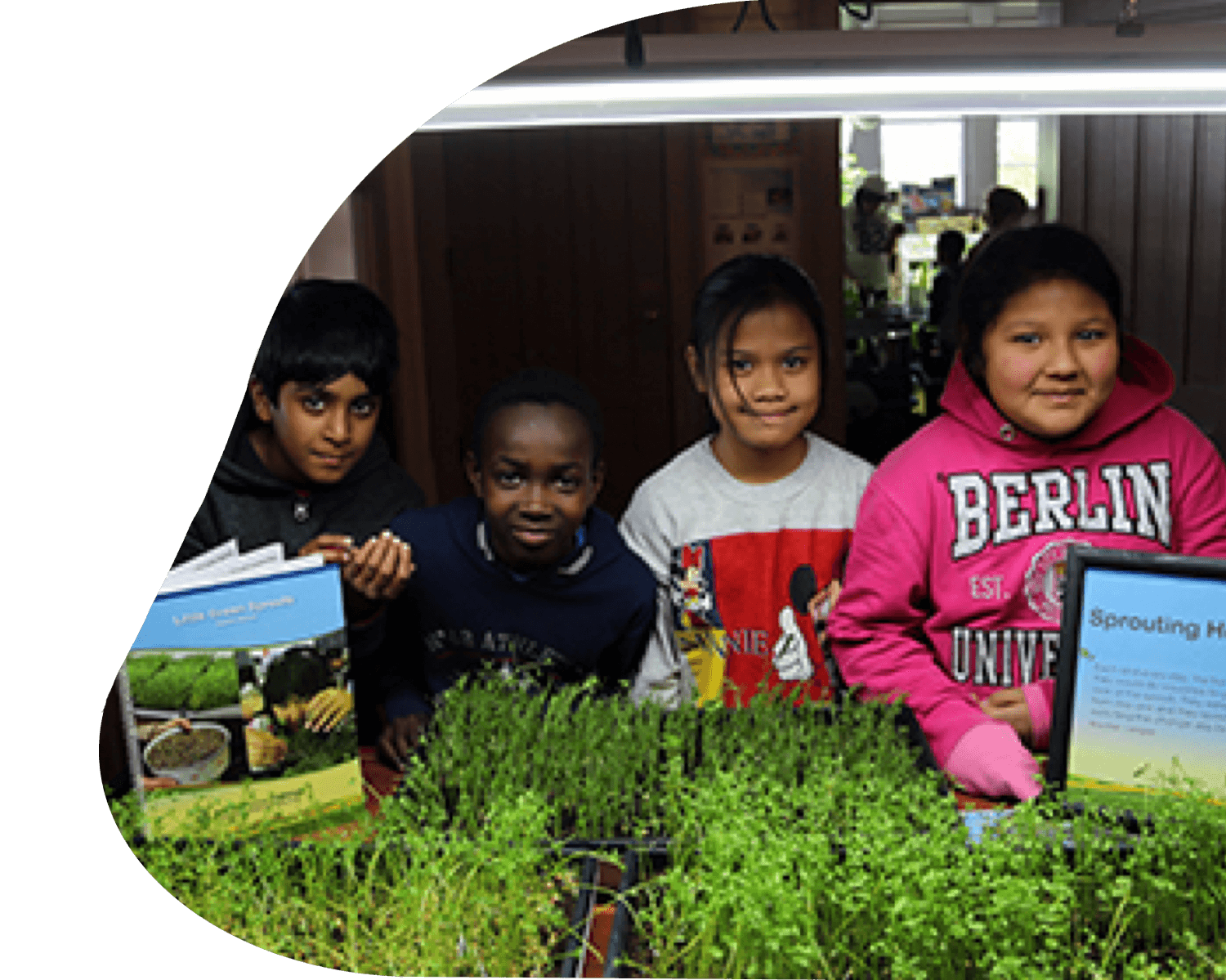
Forms and Evaluations
- The paperwork…
- MOU
- Media Release Forms
- Teacher Portal
- Teacher Surveys
- Workshop Evaluation too!
- Supplies and T-shirt order forms

